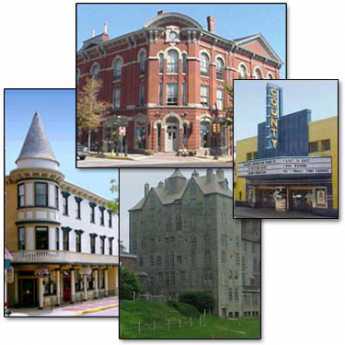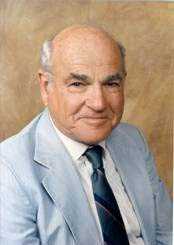Related Topics
Religious Philadelphia
William Penn wanted a colony with religious freedom. A considerable number, if not the majority, of American religious denominations were founded in this city. The main misconception about religious Philadelphia is that it is Quaker-dominated. But the broader misconception is that it is not Quaker-dominated.
Sights to See: The Outer Ring
There are many interesting places to visit in the exurban ring beyond Philadelphia, linked to the city by history rather than commerce.
Academia in the Philadelphia Region
Higher education is a source of pride, progress, and aggravation.
Science
Science
Right Angle Club 2007
A report, to the year 2007 shareholders of the Right Angle Club of Philadelphia, by the outgoing president.
Tree Huggers: Delaware Valley College

|
| Doylestown, PA |
At the time when Philadelphia and New York were both occupied by the British during the Revolutionary War, a backwoods highway connected the thirteen colonies. Doylestown is 35 miles due north of Philadelphia City Hall, at the point of intersection of this variant of the Ho Chi Minh Trail with the path which Philadelphia Tories took in their flight to Kingston, Ontario. No doubt there were some interesting conversations in Mr. Doyle's tavern at the crossroads.
Doylestown is also on the invisible border between the hegemonies of Philadelphia and New York, where descendants of German and Quaker farmers make a cautious contact with the distinctly non-Quaker artists and writers fleeing south from New York. James Michener and Pearl Buck once represented Philadelphia in the cultural stew with New Yorker ex-patriots, Somehow in this interface, a place is found for the Delaware Valley College, which started life in 1896 with Jewish founders of the National Farm School. The original board of trustees included such names as Gimbel, Lit, Snellenburg, and Erlanger, but the three-year curriculum was entirely agricultural. The founder himself was Joseph Krauskopf, who got the idea after an inspiring interview with Count Leo Tolstoy.

|
| Baruch Blumberg |
From a single building which served as classroom and dormitory, the college has grown into a four-year institution in numerous buildings scattered over a 570-acre plot with a second 120-acre farm in Montgomery County. The school is determinedly non-sectarian, and for forty years has been coeducational. It has had several changes of name, from the National Farm School, eventually to its present name. The curriculum has expanded as well, with masters degree programs in business and education. Baruch Blumberg, the Nobel Prize winner in Medicine, maintains an office there, and it is clear the college means to shift its emphasis toward the scientific basis of agriculture and the environment. It's also pretty clear that rising agricultural prices will soon re-establish agriculture as a dominant feature of our economy, although agriculture in the modern sense is quite a distance from farming in the old sense, and requires a different sort of educational preparation.
The Right Angle Club of Philadelphia recently heard from Joshua Feldstein the chairman of the board of trustees, and the brand-new president, just moving in from Columbia University. Sixty-eight years of driving ambition is personified in one, and the bright shining future in the other. We wish them well.
By the way, the tree hugger nickname comes from a campus tradition of this college, very much an active ceremony, of hugging the 400-year-old oak standing beside the president's house on the campus. The College, of course, is 250 years younger than the tree.
WWW.Philadelphia-Reflections.com/blog/1295.htm
Originally published: Friday, September 07, 2007; most-recently modified: Friday, June 07, 2019
| Posted by: Aggie | Apr 27, 2010 3:43 PM |
| Posted by: Aggie Friend | Oct 10, 2007 4:04 PM |